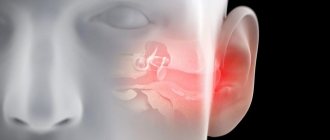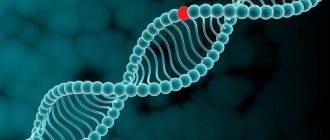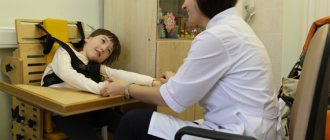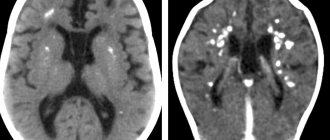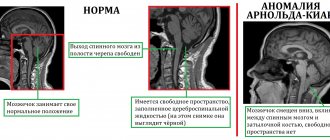Astheno-neurotic syndrome is a complex disorder of higher nervous activity and cannot be ignored. Treatment of astheno-neurotic syndrome with sleep disturbance and a feeling of weakness and constant fatigue has its own characteristics. For this purpose, the Transfiguration Clinic uses modernized neurometabolic rehabilitation programs. Therapy is selected and carried out individually, depending on the specifics of the formation and functioning of the body.
Astheno-neurotic syndrome has a cumulative property and occurs as a result of serious psychological and physical stress. The clinic’s specialists effectively combat problems by conducting individual rehabilitation therapy based on identified cause-and-effect relationships.
We select methods for treating astheno-neurotic syndrome strictly individually, so the effectiveness reaches 100%, and the duration of therapy is reduced several times, unlike other methods.
Treatment of astheno-neurotic syndrome in the clinic
Astheno-neurotic syndrome can be considered as a pathologically modified version of the adaptation of the nervous system in response to physical and mental stress, intoxication, vascular and hormonal disruptions or disorders. Recently, asthenic and neurotic disorders of the nervous system have become particularly widespread. Therefore, in the treatment of astheno-neurotic conditions, the need to use specific complex drug therapy is of particular importance. Due to the fact that the main leading link of astheno-neurotic syndrome are pathological processes associated with the functioning of higher nervous activity, the need to use complex neurometabolic therapy comes to the fore.
Treatment of astheno-neurotic syndrome requires the use of both medicinal and non-medicinal methods. Biological therapy involves the use of immunomodulators, vitamin therapy and correctors, as well as the use of other means depending on the symptoms and causes of the pathology. In mild cases, staying in sanatorium-resort institutions, where a set of specific procedures are carried out, may be effective.
Non-medicinal methods
Treatment of astheno-neurotic syndrome without the use of medications usually does not bring good, lasting results. However, in a set of measures to combat this pathology, the need for non-drug methods is obvious. The choice of these methods is made together with the attending physician on an individual basis. The range of such tools is quite wide.
Basic non-drug methods of treating astheno-neurotic syndrome
- Psychotherapy;
- Hypnotherapy;
- Selection of daily routine;
- A set of physical activities;
- Music therapy;
- Physiotherapy;
- Light therapy;
- Physiotherapy;
- Water procedures;
- Massage.
Causes of nervous disorder
Asthenia can occur for the following reasons:
- genetic predisposition to nervous system disorders;
- melancholic or choleric type of temperament in a child;
- self-doubt, low self-esteem;
- asphyxia during childbirth or oxygen starvation of the fetus during intrauterine development;
- severe emotional distress of the mother during pregnancy;
- pronounced toxicosis during gestation;
- exposure of the fetus to toxic substances as a result of maternal use of medications, alcohol, or smoking during pregnancy;
- Rh conflict between mother and child;
- disruption of metabolic processes in the cerebral cortex as a result of neuronal pathologies and diseases of the meninges;
- cerebral palsy;
- spinal injuries;
- weakened immunity of the child;
- traumatic brain injury or infectious diseases during early childhood;
- increased intracranial pressure;
- meningitis, arachnoiditis and encephalitis;
- brain oncology;
- abnormalities in the functioning of the kidneys and liver;
- deficiency of B vitamins in the body;
- hormonal imbalance, pathology of the endocrine system;
- thyroid dysfunction;
- diabetes;
- prolonged exposure to stress or severe emotional shock;
- unfavorable psychological atmosphere in the family, conflicts in relationships with loved ones;
- excessive severity of parents, use of cruel methods of education against a child;
- low socio-psychological status of the child in the group of peers;
- difficulties in socializing and adapting a child to a new team and place of residence;
- physical fatigue caused by violation of the work and rest regime;
- excessive number of activities for children in the field of additional education;
- teenage gambling addiction;
- uncontrolled viewing by children of television programs and films that have a negative impact on the psyche;
- adolescent use of psychotropic substances, alcohol, drugs.
If astheno-neurotic syndrome is not treated
At the time of this disorder, the nervous system is weakened and vulnerable to the formation of various mental pathologies. Sleep disturbances become more severe and enter the chronic phase. The patient's general condition is deteriorating and can already be classified as chronic fatigue syndrome. This is the next phase in the development of the disease.
Efficiency and social activity are greatly reduced. A person feels constant, debilitating fatigue that does not go away even after a long rest. Pain appears in different parts of the body. There is a general feeling of malaise with complaints of various disorders of organs and systems.
Problems arise in the sexual sphere and disruptions in women’s menstrual cycles can often occur. Hormonal metabolism is disrupted.
Symptoms increase and depression, anxiety, and obsessions begin to come to the fore. In extreme states of nervous system depletion, acute psychotic states (psychoses) may occur.
Main causes
- Mental and physical overload;
- Unbalanced diet;
- Having allergies;
- Pregnancy and postpartum period;
- Viral and other infections;
- Surgical interventions;
- Stress;
- Alcoholization;
- Chronic somatic diseases.
Symptoms of astheno-neurotic syndrome
The manifestation of this disease is very diverse and depends on the individual parameters of the formation of the nervous system. However, there are the most common complaints.
Astheno-neurotic syndrome is a pathological condition of higher nervous activity, which manifests itself in the form of a feeling of constant fatigue, complaints of headaches, sleep disturbances, and appetite. A person begins to experience difficulties with memory and concentration, performance decreases, and laziness appears. Rapid depletion of nervous activity resources leads to increased irritability, a decline in mood, and an increased level of anxiety. A person becomes more suspicious, suspicious, loud sounds (music), strong odors (perfumes, deodorants), bright lights begin to irritate him. It is not uncommon for the background mood to have a wave-like character, from elevated to depressive.
Astheno-neurotic syndrome significantly affects the quality of life of a person and the people around him. This is a borderline mental condition that requires the fastest possible contact with a psychiatrist and the need for comprehensive treatment.
Chronic fatigue syndrome can significantly affect the quality of life of the patient and those around him, therefore it is considered a serious psychosomatic disease that requires complex treatment.
Asthenovegetative syndrome: symptoms
The clinical picture of asthenovegetative syndrome is characterized by gradual (stepwise) development. In approximately 5-7% of cases, clear signs of the disease may be observed.
The following symptoms are characteristic of asthenovegetative syndrome:
- decreased performance;
- absent-mindedness;
- memory losses;
- genital dysfunction;
- difficulty in formulating thoughts;
- tension, anxiety, irritability;
- fast fatiguability.
Patients lose interest in their favorite activities. The patient gradually begins to forget important and necessary information, often used in work. School-age children's performance declines and apathy appears. It becomes more and more difficult for people with similar functional disorders of the autonomic system to formulate thoughts. Attempts to concentrate on a specific object are unsuccessful; they only bring greater fatigue and dissatisfaction with oneself.
In combination with asthenovegetative syndrome, a hypochondriacal disorder appears, manifested by constant worry about one’s health.
The following symptoms of the disease are typical for patients of any age and gender:
- chronic weakness;
- tachycardia;
- dyspnea;
- frequent fainting;
- presence of cold extremities;
- the appearance of pressing headaches;
- functional digestive disorders;
- profuse sweating.
Later, tinnitus occurs, urination problems occur, appetite decreases, and then disappears. Regarding dysfunctions of the genital organs, such disorders manifest themselves to varying degrees. Some patients may experience a complete absence of sexual arousal due to erectile dysfunction, or, conversely, constant sexual arousal. At the very last stages of the development of the disease, sleep disorders appear - insomnia and night headaches appear that are not relieved by painkillers.
Astheno-neurotic syndrome: diagnosis
Astheno-neurotic syndrome can develop in both children and adults. It is usually very difficult to diagnose due to the presence of somatic complaints that come to the fore. Teenagers often complain of headaches, pain in the heart, fatigue, and drowsiness.
In adults, the symptoms of asthenia are usually much more pronounced and varied. Manifestations of the disease are usually observed more intensely in the afternoon, and reach a maximum in the evening. Weakness and apathy, lack of desire to do any work and decreased concentration are noted. When performing exercises that require mental effort, difficulties in making decisions, absent-mindedness, irritability, and memory impairment are noted.
Emotional stress leads to increased symptoms, which can ultimately provoke the development of depression, neuroses, and neurasthenia.
In addition to the main symptoms, disorders of the autonomic nervous system may come to the fore, such as:
- tachycardia, palpitations, interruptions;
- blood pressure surges;
- increased sweating, feeling of chills and heat;
- decreased appetite, impaired digestive function;
- headache, dizziness;
- decreased libido.
Differential diagnosis
Astheno-neurotic syndrome often accompanies the initial stages of such somatic diseases as: Arterial hypertension, coronary heart disease, angina pectoris, angina pectoris; cerebrovascular accidents; atherosclerosis and others.
Therefore, we carry out differentiated diagnostics to exclude somatic pathology.
If you notice the above symptoms, then you should not delay. Make an appointment with our specialist and undergo differential diagnostics. Diagnosis of asthenia includes a comprehensive examination, the purpose of which is to identify the pathology that caused the disease.
Hyposthenic form
It can develop as the next phase of asthenic neurosis or occur immediately in people with an asthenic psychotype. At this stage, a patient with neurasthenia suffers from mental and physical weakness, lethargy, low mood, lack of interest in any activity, and passivity. Feelings of sadness and anxiety haunt him constantly, causing emotional instability. A neurasthenic person is prone to tearfulness, touchiness, and complaints about his health. Being focused on his sensations, he cannot concentrate to perform intellectual tasks or physical work. Asthenic neurosis can be either an independent disease or a harbinger or manifestation of more serious, difficult to treat mental disorders - schizophrenia, atypical depression. Neurasthenia can also be a symptom of somatic diseases - HIV, tuberculosis, oncology, etc. Therefore, it is so important to consult a specialist in time when the first signs of the disease appear. An experienced psychiatrist or psychotherapist at the Neopsy Mental Health Center is able to differentiate this disorder from other diseases and prescribe effective treatment with a lasting positive therapeutic result.
Astheno-neurotic syndrome: we recommend
It is recommended to eat foods rich in vitamin B and tryptophan (meat, bananas, beans, cheese and cottage cheese, dairy products, etc.). The amino acid tryptophan is responsible for the normal functioning of the nervous system - sleep, relaxation and emotional state, and is a source of the “happiness hormone” - serotonin.
Qualified specialists at the Transfiguration Clinic will help you create an effective therapeutic program, taking into account both the true cause of the disease and individual factors.
Prevention of asthenia
Sarklinik has developed an effective program “ Prevention of asthenia ”, which allows you to avoid future exhaustion of the nervous system. A healthy nervous system is a reality today. The peculiarity of the disease is that the symptoms slowly, gradually, but clearly increase, and the condition worsens sharply. Do not expect dangerous complications of asthenia, asthenic syndrome; contact Sarclinic for timely treatment.
Sign up for a consultation. They have contraindications. Specialist consultation is required.
Photo: (©) Bds | Dreamstime.com \ Dreamstock.ru The people depicted in the photo are models, do not suffer from the diseases described and/or all similarities are excluded.
Related posts:
Facial nerve, facial nerve neuritis, treatment, inflammation, paresis, neuritis, neuropathy, facial nerve neuralgia
Urinary incontinence, treatment of women, men, children, adults, postpartum, neurogenic bladder, spina bifida
Nervous exhaustion symptoms signs treatment, exhaustion of the nervous system
Brain stroke: ischemic, hemorrhagic, treatment, rehabilitation, consequences
Trigeminal nerve, inflammation, treatment, trigeminal neuralgia, symptoms, how to treat
Comments ()
My recommendations
Children facing neurotic disorders need sessions with a psychologist. The duration of the course is 3–6 months. This is necessary to develop adequate self-esteem in children and prevent relapse of the disease.
Children with asthenia need to be taught the rules of interpersonal interaction and group work. Therefore, during psychological rehabilitation, both individual classes and group trainings are conducted.
Art therapy classes help children find hobbies. Having gained the opportunity for self-realization, children find something to do - creativity has a healing effect on them.
You can strengthen family relationships and normalize the psychological climate at home through joint leisure time between children and parents, visiting the theater and cinema. However, when organizing meaningful leisure time, you should remember that an excess of vivid impressions is also a load on the nervous system, which may be too much for an exhausted body.
Complications of the disease
Common complications of astheno-neurotic disorder are:
- hormonal disorders that increase the risk of pathology of the digestive tract, acceleration or slowdown of puberty;
- lack of reproductive capacity in adult life;
- socialization difficulties;
- depression, suicidal thoughts;
If you start treatment for a neurotic disorder at the initial stage, negative consequences and complications can be avoided.
Material and methods
24 patients were examined, of which group 1 included 14 patients who had undergone BM (8 boys and 6 girls aged 7-12 years, average age - 9.91±1.71 years). The 2nd group included 10 patients who underwent BGM (6 boys and 4 girls, 7-12 years old, average age - 10.4±2.36 years).
All patients received cogitum 500 mg per day for 8 weeks. Before the start of treatment and after completion, neurological and neuropsychological (Bourdon, Luria tests), EEG (24-channel Neurotravel complex, Atesmedica, Italy), and MRI were carried out.
Data processing was carried out using the licensed statistical software package Microsoft Exel 2007 and Statistica 6. The indicators were assessed using nonparametric research methods. Results were considered statistically significant at p
<0,05.
Causes of the disease
The main cause of neurosis (asthenic syndrome) is a long-term internal conflict. It occurs when a person’s true desires conflict with the conditions of the real world. To put it briefly, the position is “need” or “want, because the results achieved are still not enough.” Such states are characteristic of people who have inflated demands on themselves - they rely on super-achievement.
An important factor is also the presence of physiological factors that lead to general exhaustion of the body. It could be:
- lack of sleep;
- improper or inadequate nutrition;
- lack of physical activity;
- poisoning of the body with alcohol, tobacco;
- long-term lack of proper rest.
The causes of asthenic neurosis in children are associated with mental overload, which occurs when visiting a large number of different clubs and sections. At the same time, physical overexertion extremely rarely leads to the appearance of neurasthenia. For example, when attending professional sports clubs, the load is heavy, but the resulting fatigue or weakness often goes away after rest.
